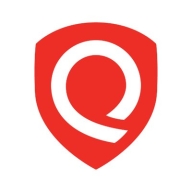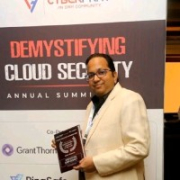

Find out what your peers are saying about SonarSource Sàrl, Veracode, Checkmarx and others in Application Security Tools.
| Product | Market Share (%) |
|---|---|
| Qualys Web Application Scanning | 1.8% |
| Nucleus | 0.6% |
| Other | 97.6% |

| Company Size | Count |
|---|---|
| Small Business | 8 |
| Midsize Enterprise | 6 |
| Large Enterprise | 27 |
Nucleus provides a streamlined data management and collaboration platform that enhances efficiency. With robust analytics and seamless integration, it empowers businesses to make informed decisions swiftly.
Nucleus serves as a transformative tool in data management, offering a comprehensive suite of features designed to boost productivity and data integrity. Known for its user-friendly interface and powerful analytics, Nucleus stands out by facilitating seamless collaboration across teams while maintaining secure and centralized data control. The platform's exceptional adaptability allows it to integrate effortlessly with existing systems, supporting a wide array of use cases.
What are the most important features of Nucleus?In industries such as finance, healthcare, and manufacturing, Nucleus is implemented to enhance data-driven strategies, optimizing operational workflows and ensuring compliance with industry standards. This adaptability across sectors underscores its value in addressing specific business challenges with tailored solutions.
Qualys Web Application Scanning (WAS) is a fully cloud-based web application security scanner. The scanner will automatically crawl periodically and test web applications to discover potential vulnerabilities, including cross-site scripting (XSS) and SQL injection. The consistent testing equips the automated service to generate consistent results, lessen false positives, and offer the ability to scale to protect thousands of websites effortlessly.
Qualys Web Application Scanning is bundled with different scanning technology to carefully scan websites for malware infections and will send notifications to website owners to assist in preventing blacklisting and brand reputation damage. As digital transformation takes place in various organizations, Qualys WAS gives organizations the ability to track and document their web app security status through its interactive reporting capabilities.
Qualys WAS empowers organizations to remediate any web application vulnerabilities quickly. Some of the key tools offered are:
Benefits of Qualys Web Application Scanning
Qualys Web Application Scanning offers many benefits, including:
Reviews from Real Users
Qualys Web Application Scanning stands out among its competitors for a variety of reasons. Two of those reasons are its progressive scan and quick detection of vulnerabilities.
P.K., a senior software developer at a tech vendor, writes, "The feature that I have found most valuable is the progressive scan. It is good. It's done in 24 hours."
Nagaraj S., lead cybersecurity engineer at a tech service company, notes, "I have found the detection of vulnerabilities tool thorough with good results and the graphical display output to be wonderful and full of colors. It allows many types of outputs, such as bar and chart previews."
We monitor all Application Security Tools reviews to prevent fraudulent reviews and keep review quality high. We do not post reviews by company employees or direct competitors. We validate each review for authenticity via cross-reference with LinkedIn, and personal follow-up with the reviewer when necessary.